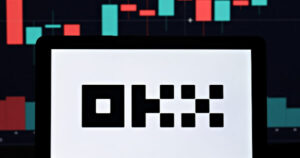Non-banking financial companies (NBFCs) focusing on gold loans have maintained a reasonably resilient market share despite intense competition from banks, according to CRISIL Ratings.
That, and support from strong capitalisation, sharp focus on risk management and healthy profitability has meant their credit profiles continue to be stable. Growth in the assets under management (AUM) of gold-loan NBFCs has been driven by three factors: ability to hold on to their customers — as evinced in a steady base; focus on small and mid-size loans; and increasing reach by expanding branch networks. These trends have meant the market share of gold-loan NBFCs has been resilient at over 60% between March 2021 to September 2023 despite strong competition from banks.
While NBFCs are known for their servicing agility, banks have focused on borrowers seeking bigger loans and competitive interest rates. On their part, banks have sharpened focus on non-agricultural gold loans for personal use, particularly in the Rs 3 lakh and above ticket sizes, over the past 3 years. On the other hand, NBFCs have adopted steps to sustain growth rate and market share. In the first half of this fiscal, NBFCs matched banks by growing at 10-11% (non-annualised).
Says Malvika Bhotika, Director, CRISIL Ratings, “Gold-loan NBFCs have bolstered clientele and managed growth by opening branches in new geographies, offering online gold loans and door-step services, and deploying marketing strategies to target inactive customers.”
Growth for gold-loan NBFCs remains highly influenced by change in the prices of the precious metal. In fiscal 2023, gold prices rose 10%, with loan books rising in tandem, supported by bigger ticket sizes. Similar was the trend in this fiscal first half, with prices rising 13% while AUM of gold-loan NBFCs grew 10% sequentially. From an asset quality perspective, holding timely auctions has kept the credit cost — the apt gauge of gold-loan asset quality — in check, at 0.2-0.4% historically (including in the pandemic-impacted fiscal 2022).
Last fiscal, the credit cost was 0.3%. The discipline on loan-to-value (LTV) and auctions remains high as gold-loan NBFCs maintain sharp focus on risk management. Average portfolio LTV has remained range-bound at 65-70% over the years.In terms of lending yields, there has been on an uptrend over the past two quarters. Yields had fallen in fiscal 2022 and the first half of fiscal 2023 as NBFCs looked to attract new customers with competitive pricing. However, with leading players largely discontinuing these schemes, yields have inched up again.
Lending spreads will continue to be over 10%, backed by the ability to pass on the rate increases to customers. And profitability, as measured by return on managed assets, is expected to remain comfortable in the range of 3.5-5% for large gold-loan NBFCs.
Says Prashant Mane, Associate Director, CRISIL Ratings, “The healthy profitability, leading to robust internal accrual, will continue to support growth without the need for any external equity infusion. Consequently, gearing levels are expected to remain comfortable at less than 3 times over the medium term.”










